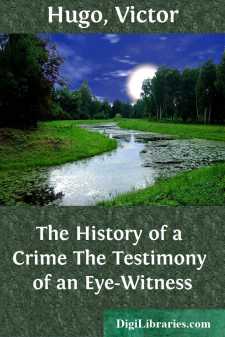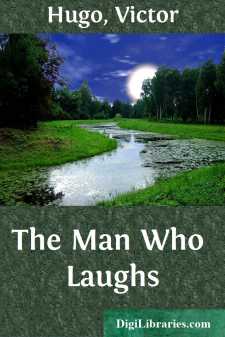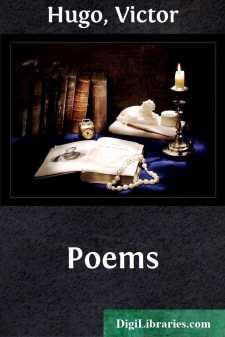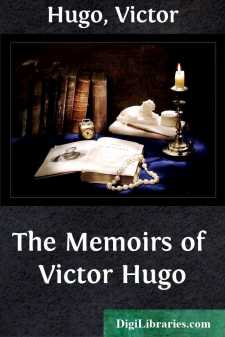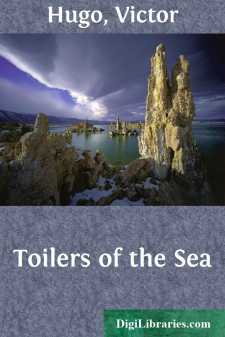Categories
- Antiques & Collectibles 13
- Architecture 36
- Art 48
- Bibles 22
- Biography & Autobiography 813
- Body, Mind & Spirit 142
- Business & Economics 28
- Children's Books 17
- Children's Fiction 14
- Computers 4
- Cooking 94
- Crafts & Hobbies 4
- Drama 346
- Education 46
- Family & Relationships 57
- Fiction 11829
- Games 19
- Gardening 17
- Health & Fitness 34
- History 1377
- House & Home 1
- Humor 147
- Juvenile Fiction 1873
- Juvenile Nonfiction 202
- Language Arts & Disciplines 88
- Law 16
- Literary Collections 686
- Literary Criticism 179
- Mathematics 13
- Medical 41
- Music 40
- Nature 179
- Non-Classifiable 1768
- Performing Arts 7
- Periodicals 1453
- Philosophy 64
- Photography 2
- Poetry 896
- Political Science 203
- Psychology 42
- Reference 154
- Religion 513
- Science 126
- Self-Help 84
- Social Science 81
- Sports & Recreation 34
- Study Aids 3
- Technology & Engineering 59
- Transportation 23
- Travel 463
- True Crime 29
The History of a Crime The Testimony of an Eye-Witness
by: Victor Hugo
Description:
Excerpt
CHAPTER I.
"SECURITY"
On December 1, 1851, Charras[1] shrugged his shoulder and unloaded his pistols. In truth, the belief in the possibility of a coup d'etat had become humiliating. The supposition of such illegal violence on the part of M. Louis Bonaparte vanished upon serious consideration. The great question of the day was manifestly the Devincq election; it was clear that the Government was only thinking of that matter. As to a conspiracy against the Republic and against the People, how could any one premeditate such a plot? Where was the man capable of entertaining such a dream? For a tragedy there must be an actor, and here assuredly the actor was wanting. To outrage Right, to suppress the Assembly, to abolish the Constitution, to strangle the Republic, to overthrow the Nation, to sully the Flag, to dishonor the Army, to suborn the Clergy and the Magistracy, to succeed, to triumph, to govern, to administer, to exile, to banish, to transport, to ruin, to assassinate, to reign, with such complicities that the law at last resembles a foul bed of corruption. What! All these enormities were to be committed! And by whom? By a Colossus? No, by a dwarf. People laughed at the notion. They no longer said "What a crime!" but "What a farce!" For after all they reflected; heinous crimes require stature. Certain crimes are too lofty for certain hands. A man who would achieve an 18th Brumaire must have Arcola in his past and Austerlitz in his future. The art of becoming a great scoundrel is not accorded to the first comer. People said to themselves, Who is this son of Hortense? He has Strasbourg behind him instead of Arcola, and Boulogne in place of Austerlitz. He is a Frenchman, born a Dutchman, and naturalized a Swiss; he is a Bonaparte crossed with a Verhuell; he is only celebrated for the ludicrousness of his imperial attitude, and he who would pluck a feather from his eagle would risk finding a goose's quill in his hand. This Bonaparte does not pass currency in the array, he is a counterfeit image less of gold than of lead, and assuredly French soldiers will not give us the change for this false Napoleon in rebellion, in atrocities, in massacres, in outrages, in treason. If he should attempt roguery it would miscarry. Not a regiment would stir. Besides, why should he make such an attempt? Doubtless he has his suspicious side, but why suppose him an absolute villain? Such extreme outrages are beyond him; he is incapable of them physically, why judge him capable of them morally? Has he not pledged honor? Has he not said, "No one in Europe doubts my word?" Let us fear nothing. To this could be answered, Crimes are committed either on a grand or on a mean scale. In the first category there is Caesar; in the second there is Mandrin. Caesar passes the Rubicon, Mandrin bestrides the gutter. But wise men interposed, "Are we not prejudiced by offensive conjectures? This man has been exiled and unfortunate. Exile enlightens, misfortune corrects."
For his part Louis Bonaparte protested energetically....


